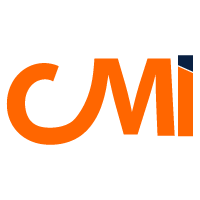Table of Contents
CMI 510 Managing Conflict is a course designed to equip individuals with the skills and knowledge necessary to handle and resolve conflicts in the workplace effectively. This course will cover a range of conflict management theories, strategies and techniques to help participants understand the sources of conflict, assess the impact of conflict, and develop the necessary skills to manage and resolve conflicts constructively and professionally. Whether you are a manager, team leader, or individual contributor, this course will provide you with the tools and insights necessary to handle conflicts with confidence and integrity. Through a combination of lectures, discussions, and practical exercises, participants can explore real-world scenarios and develop strategies to manage conflicts effectively in their workplace.
What you’ll learn:
In CMI 510 Managing Conflict, you will learn a range of critical concepts and skills related to conflict management, including:
- Understanding the sources of conflict: You will learn about the common causes of conflict in the workplace, including communication breakdowns, personality clashes, and competition for resources.
- Assessing the impact of conflict: You will learn how to evaluate the impact of conflicts on individuals, teams, and the organization and how to identify the root causes of conflicts.
- Conflict resolution techniques: You will learn about various techniques, including negotiation, mediation, and collaboration, and practice these techniques in real-world scenarios.
- Communication skills: You will develop your communication skills, including active listening, assertiveness, and conflict resolution communication.
- Team building and collaboration: You will learn about the importance of team building and cooperation in preventing and resolving conflicts in the workplace.
- Developing a conflict management plan: You will learn how to create a conflict management plan that includes strategies for avoiding, managing, and resolving conflicts in the workplace.
By the end of this course, you will have the skills and knowledge necessary to handle and resolve conflicts in your workplace effectively and to promote a positive and productive work environment for yourself and your colleagues.
Why study the unit?
There are several reasons why it is important to study CMI 510 Managing Conflict:
- Improving workplace relationships: Effective conflict management skills can help you build stronger, more positive relationships with your colleagues, leading to a more harmonious and productive workplace.
- Increasing personal and professional growth: Developing conflict management skills can help you grow personally and professionally as you become more confident in handling challenging situations and working effectively with others.
- Enhancing team performance: When conflicts are effectively managed, team members can collaborate more effectively, leading to improved team performance and greater success for the organization.
- Reducing stress: Conflict in the workplace can be a major source of stress for individuals, leading to decreased job satisfaction and increased turnover. By learning how to manage conflicts effectively, you can reduce your own stress levels and maintain your well-being.
- Improving decision-making: Effective conflict management skills can help you make better decisions by enabling you to consider multiple perspectives and weigh the potential outcomes of different options.
By studying CMI 510 Managing Conflict, you will gain the skills and knowledge necessary to effectively handle and resolve conflicts in your workplace, leading to improved relationships, greater personal and professional growth, and increased success for you and your organization.
What are the possible outcomes?
The possible outcomes of studying CMI 510 Managing Conflict include:
- Improved conflict management skills: You will learn about a range of conflict resolution techniques and can practice these techniques in real-world scenarios, improving your conflict management skills and confidence.
- Enhanced workplace relationships: By effectively managing conflicts, you can build stronger, more positive relationships with your colleagues, leading to a more harmonious and productive workplace.
- Increased job satisfaction: When conflicts are effectively managed, individuals are less likely to experience stress and burnout, leading to increased job satisfaction and reduced turnover.
- Improved team performance: Effective conflict management can improve collaboration and communication among team members, leading to enhanced team performance and greater success for the organization.
- Better decision-making: By considering multiple perspectives and weighing the potential outcomes of different options, you can make better decisions in the face of conflicts.
- Personal and professional growth: Developing conflict management skills can help you grow personally and professionally as you become more confident in handling challenging situations and working effectively with others.
By studying CMI 510 Managing Conflict, you will be well-equipped to handle and resolve conflicts in your workplace, leading to a range of positive outcomes for yourself and your organisation.
What are the entry requirements?
The requirements for enrolling in CMI 510 are simple – candidates must be 18 years or older, have a strong command of the English language, and be able to write. In addition, participants should be employed in a role where they can apply their knowledge and skills or have prior professional experience. The training centre is responsible for ensuring that all participants have the necessary abilities to complete the course and assessments.
The centre will provide tailored support and guidance, including a customised learning plan, to ensure that participants reach their full potential. A thorough assessment will be conducted at the program’s start to identify individual development needs and goals. The centre is committed to meeting the unique needs of each participant and maximising their learning experience.
How can we help?
Presenting a Managing Conflict assignment can be challenging, but our team of experienced authors is here to help. The assignments are integral to evaluating your CMI Qualifications, and each unit of study requires a project to demonstrate the student’s understanding of the content.
Our team comprises full-time researchers with a deep understanding of the units and ongoing research on various global trends, ensuring the provision of comprehensive content. In addition, our preparation will make it easier for you to demonstrate your thorough research to the examiners.
Given the time-intensive nature of the course, our accessible researchers prioritize quality and in-depth research while completing the assignments before the deadline.
Effective communication is a key component of our approach, ensuring that our team fully understands your project goals and delivers the work you require. As a result, you can trust that our experts will meet your needs and deliver high-quality work with in-depth research at rates that won’t strain your resources.
We are available 24/7 for your convenience and committed to our promise of quality and reliability. So don’t let past setbacks hold you back – our team is here to help.
Wrap Up
In conclusion, CMI 510 Managing Conflict is a valuable course for individuals seeking to enhance their conflict resolution skills in a professional setting. The course covers various topics, including conflict, communication, and negotiation strategies. By completing this course, individuals can develop the skills and knowledge necessary to manage conflicts and maintain positive working relationships effectively.
Upon completion of the course, individuals can expect to have a deeper understanding of conflict, the ability to identify and analyse different conflict scenarios, and the skills to apply effective resolution strategies. Additionally, they will have the opportunity to demonstrate their learning through assignments, which serve as a valuable tool for evaluating their progress and understanding of the course material.
In summary, CMI 510 Managing Conflict is a comprehensive course that provides individuals with the tools and knowledge necessary to manage conflict in the workplace effectively. Whether you seek to advance your career or improve your conflict resolution skills, this course offers a wealth of valuable information and practical tools to help you achieve your goals.
Related Articles:
FAQ
What is conflict?
Conflict is a disagreement or clash between two or more people or groups. It can be caused by a variety of factors, such as differences in opinion, personality clashes, or competition for resources.
Why is conflict management important?
Conflict is a natural part of life, but it can be destructive if it is not managed effectively. Conflict management is the process of resolving conflict in a way that is constructive and beneficial to all parties involved.
What are the different types of conflict?
There are many different types of conflict, but some of the most common include:
1. Task conflict: This type of conflict is focused on the work that needs to be done. It can be caused by differences in opinion about how to do the work, or by disagreements about the goals of the work.
2. Relationship conflict: This type of conflict is focused on the relationships between people. It can be caused by personality clashes, or by disagreements about how to interact with each other.
3. Structural conflict: This type of conflict is caused by the way an organization is structured. It can be caused by unclear roles and responsibilities, or by a lack of communication between different parts of the organization.
What are the different approaches to conflict management?
There are many different approaches to conflict management, but some of the most common include:
1. Avoidance: This approach involves avoiding the conflict altogether. This can be effective in some cases, but it can also lead to the conflict festering and becoming worse.
2. Accommodation: This approach involves giving in to the other party’s demands. This can be effective in some cases, but it can also lead to resentment and a loss of power.
3. Compromise: This approach involves both parties giving up something in order to reach a solution. This can be a more effective approach than avoidance or accommodation, but it can also be difficult to achieve.
4. Collaboration: This approach involves working together to find a solution that meets the needs of both parties. This is the most effective approach to conflict management, but it can also be the most difficult.
What are some common challenges in conflict management?
Some common challenges in conflict management include:
1. Emotions: Conflict can often be emotionally charged, which can make it difficult to think clearly and reach a solution.
2. Communication: Poor communication can also make it difficult to resolve conflict.
3. Power imbalances: When there is a power imbalance between the parties involved, it can be difficult to reach a fair solution.
What are some resources for learning more about conflict management?
Some resources for learning more about conflict management include:
1. The CMI 510 Managing Conflict unit
2. The Conflict Management Institute website
3. The book “Getting to Yes” by Roger Fisher and William Ury
Why Choose Us?
- GPT Zero
- 100% Non-plagiarised Papers
- Dedicated human resource writers
- 24/7 /365 Service Available
- Affordable Prices
- Money-back and Privacy guarantees
- Unlimited Amendments upon request
- Satisfaction guarantee

